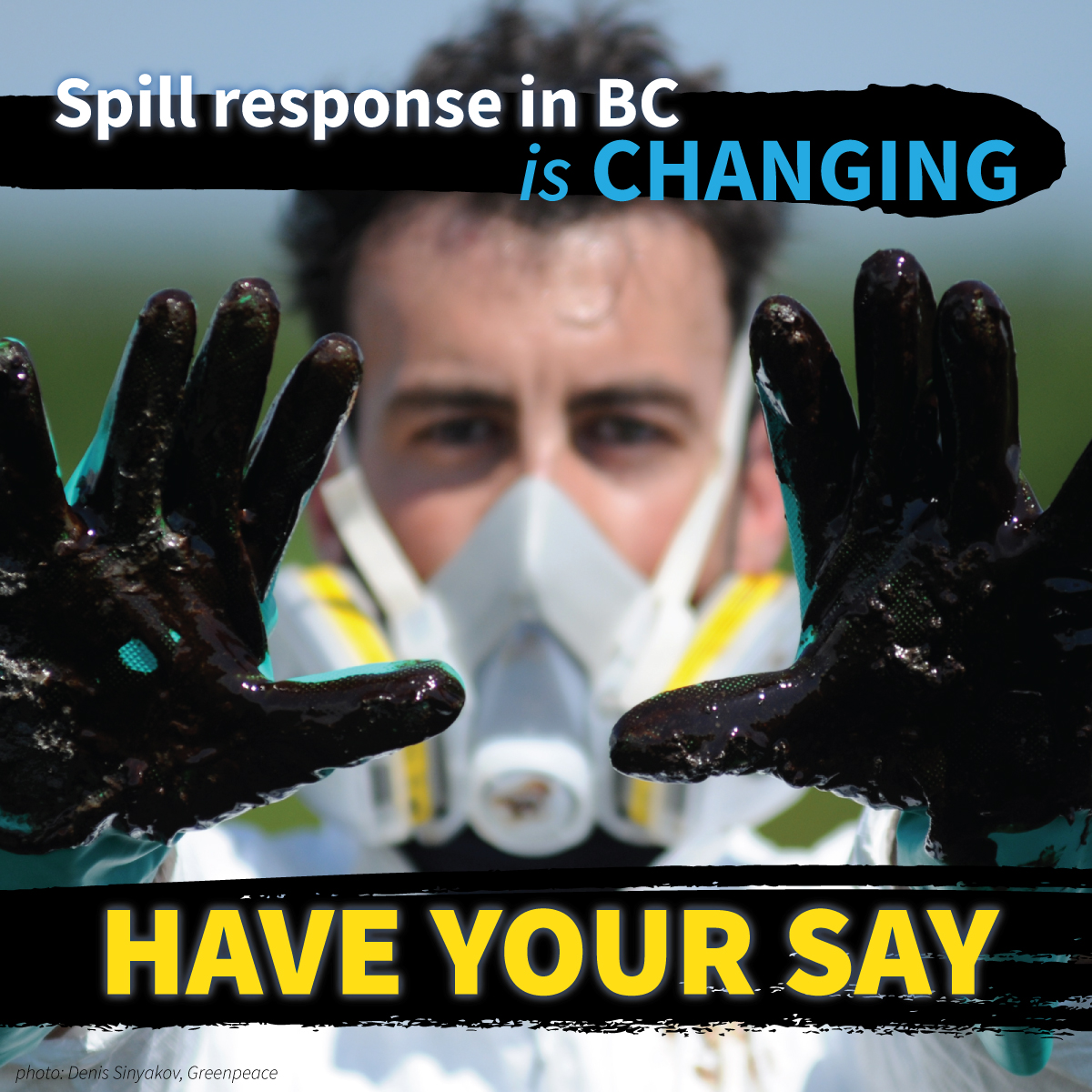
Would BC be ready for a major spill? Now is your chance to have your say.
The Government of BC is changing how we plan for and respond to spills in the province, and is holding a public comment period until June 30, 2016, on its proposed spill planning and response framework. West Coast has collaborated with our friends at Georgia Strait Alliance and Living Oceans Society to publish a backgrounder that can help you make your voice heard on the BC Government’s proposed spill response framework.
The backgrounder gives an overview of BC’s proposed spill response framework that includes information about what is changing, the key shortcomings of the proposed framework, how it relates to the BC Government’s positioning around oil pipelines and tankers, and how to get involved.
You can take action by reading the backgrounder and having your say using our spill response comment tool below. You can also submit comments on the BC Government’s website here.
What are the main issues at stake? Here are a few of the key points we’ve identified:
Spotty spill response needs changing
BC communities are at risk from toxic spills of hazardous materials that criss-cross our province by road, rail and ship every day. Our current spill response framework is spotty, unplanned and under-resourced, so this move to make improvements is welcome – but long overdue.
Government is leaving the fox to guard the henhouse
Unfortunately, BC’s proposed new framework is poised to leave control of spill response in the hands of industry, from planning through to cleanup. This would abdicate government’s fundamental responsibility to ensure the safety of communities, and would be entirely unaccountable to stakeholders, citizens and First Nations.
No protection from tar sands spills
The proposed framework also offers nothing to protect us from tar sands spills: the technology to clean up sunken bitumen simply doesn’t exist, and no amount of regulation will change that. The new framework cannot, therefore, be used to justify approval of the Kinder Morgan or Enbridge pipeline proposals, or any other new pipeline to transport heavy oil.
Now is the time to let the BC Government know that its proposed framework needs serious fixing, and that it does not provide justification for expanding the transport of heavy oils like diluted bitumen. You can submit a comment to the BC Government on its proposed spill response framework using our SpeakOut tool below.
Here are three key shortcomings that you may want to consider addressing:
- Industry is left in charge: The most critical flaw in BC’s proposed spill response regime is that the bulk of spill planning and response activities would be led by the companies that pose spill risks. This is not “world-leading” and it will not inspire public confidence. While industry should be involved as a key participant, spill planning should be government-led, which is the approach in neighbouring American jurisdictions. There must also be mechanisms to ensure accountability to First Nations and the public.
- Weak public involvement: The framework does little to require meaningful involvement of the public in spill preparedness. Mechanisms and roles for ensuring meaningful public participation at all levels of spill preparedness planning should be mandatory and clearly spelled out. Our backgrounder recommends a Citizens Advisory Committee that has a formal, ongoing role guaranteed by regulations to facilitate informed input from the public at all planning stages. Furthermore, all levels of plans and reports from preparedness and response activities should routinely be made public.
- Lack of standards for effective spill response: No specific oversight of spill response by government is currently required under BC’s proposed framework. Moreover, while the framework gives the BC Government tools to intervene in a situation where industry’s spill response and recovery activities are inadequate to deal with the effects of the spill on human health, the environment or infrastructure, there are currently no standards to determine when or what type of government intervention is required. The government must set standards for ‘effective’ spill response, establishing firm guidance for what is required in terms of both response and recovery to fully deal with the adverse effects of a spill.
To have your say, please check out our backgrounder and use our tool below to provide a comment to the BC Government’s spill response engagement team.
By Gavin Smith, Staff Counsel
